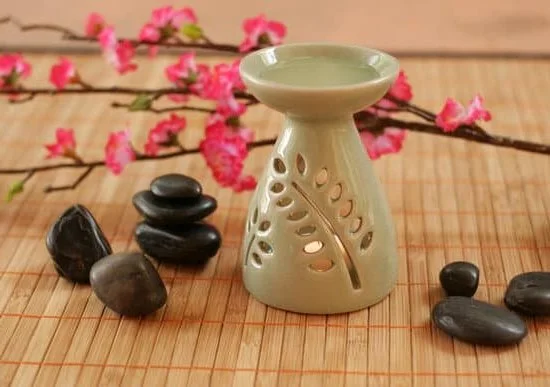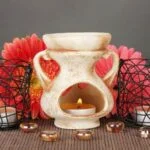Aromatherapy is the use of essential oils and plant extracts to promote health and well-being. In recent years, there has been a growing interest in the use of aromatherapy in hospital settings as a complementary therapy to conventional medical treatments. Hospitals that practice aromatherapy are finding that it offers a range of benefits for patients, including reducing anxiety, improving sleep, and relieving pain.
The history of aromatherapy in hospitals dates back to ancient civilizations where aromatic plants were used for their medicinal properties. Over time, the use of essential oils has become more mainstream in healthcare settings, with many hospitals now offering aromatherapy as part of their integrative care approach.
In this article, we will delve into the integration of aromatherapy into hospital care, exploring its benefits for patients and examining case studies of successful programs. Additionally, we will discuss the role of certified aromatherapists in hospital settings and address the challenges and controversies surrounding the use of aromatherapy in hospitals. Finally, we will explore the future trends and potential developments in the use of aromatherapy in hospitals.
History of Aromatherapy in Hospitals
Aromatherapy has a long history in hospitals, dating back to ancient civilizations such as the Egyptians, Greeks, and Romans who used essential oils for medicinal and healing purposes. The use of aromatherapy continued into the Middle Ages and Renaissance period, where it was commonly used in hospitals to treat various ailments. However, with the advancement of modern medicine, the practice of aromatherapy faded from hospital settings for many years.
In recent decades, there has been a resurgence of interest in incorporating aromatherapy into hospital care. This renewed focus on holistic and integrative therapies has led to a reintegration of aromatherapy into hospitals around the world. This return to ancient healing practices is driven by the growing body of research demonstrating the benefits of aromatherapy for patients.
The use of essential oils in hospitals has expanded beyond traditional practices to include diffusion, topical applications, massage therapy, and even internal use under the guidance of trained professionals. Hospitals that practice aromatherapy have seen positive results in patient satisfaction, pain management, anxiety reduction, improved sleep quality, and overall well-being. As a result, more healthcare facilities are considering or adopting the use of aromatherapy as part of their patient care protocols.
- Ancient civilizations’ use of essential oils
- Resurgence of interest in incorporating aromatherapy into hospital care
- Expanded methods for using essential oils: diffusion, topical applications, massage therapy
How Aromatherapy Is Integrated Into Hospital Care
Aromatherapy has been increasingly integrated into hospital care in recent years, as more and more healthcare providers recognize the holistic benefits it can offer to patients. Hospitals that practice aromatherapy have found that this alternative therapy can complement traditional medical treatments and provide additional support for patients in a variety of settings, from emergency rooms to labor and delivery wards.
One way that aromatherapy is integrated into hospital care is through the use of essential oils. These potent plant extracts are carefully selected for their therapeutic properties and are often diffused in patient rooms or applied during massage therapy sessions. Additionally, hospitals may offer aromatherapy classes or workshops for patients and their families to learn about the benefits of using essential oils at home, promoting continuity of care beyond the hospital setting.
Moreover, some hospitals also feature specialized aromatherapy programs led by certified practitioners. These experts work closely with healthcare teams to develop individualized treatment plans for patients, incorporating essential oils into their overall care. In such cases, the involvement of certified aromatherapists ensures the safe and effective use of aromatherapy in hospital settings while providing patients with a deeper level of personalized support.
| Benefits of Aromatherapy Integration in Hospitals | Key Considerations |
|---|---|
| Complements traditional medical treatments | Use of high-quality essential oils |
| Promotes patient education and self-care | Certified aromatherapist oversight |
| Individualized treatment plans | Fosters collaboration with healthcare teams |
Benefits of Aromatherapy in Hospitals for Patients
The use of aromatherapy in hospitals has been gaining traction in recent years, with many medical institutions recognizing the benefits it can bring to patients. Aromatherapy involves the use of essential oils and natural extracts from plants to promote healing and relaxation, making it an ideal complement to traditional medical treatments. In hospital settings, aromatherapy has been shown to help reduce stress and anxiety levels in patients, alleviate pain, improve sleep quality, and enhance overall well-being.
Studies have documented the positive effects of aromatherapy on patients in hospitals. For example, research has found that the inhalation of lavender essential oil can lead to a significant reduction in anxiety levels for patients awaiting surgical procedures.
Additionally, the use of peppermint and ginger essential oils has been linked to alleviating nausea and vomiting in cancer patients undergoing chemotherapy. These findings highlight the potential for aromatherapy to serve as a non-invasive and holistic approach to patient care within hospital settings.
Hospitals that practice aromatherapy often offer a range of options for patients, including diffusing essential oils in patient rooms, providing scented oils for massage therapy, or offering inhalation therapy through personal or room diffusers. By integrating aromatherapy into their care protocols, hospitals are able to provide a more comprehensive and patient-centered approach to healthcare.
| Benefits of Aromatherapy | Source |
|---|---|
| Reduction of anxiety levels | Journal of PeriAnesthesia Nursing |
| Alleviation of nausea and vomiting | The Journal Of Alternative And Complementary Medicine |
Case Studies of Successful Aromatherapy Programs in Hospitals
Aromatherapy has gained popularity in hospital settings due to its potential benefits for patients’ well-being. Several hospitals have successfully integrated aromatherapy into their care programs, yielding positive outcomes for patients. This section will explore some case studies of successful aromatherapy programs in hospitals, highlighting the impact of this complementary therapy on patient care.
The Cleveland Clinic
The Cleveland Clinic, a renowned medical center in the United States, has embraced the use of aromatherapy as part of its integrative medicine approach. In a study conducted at the clinic, researchers found that patients who received aromatherapy reported reduced levels of pain and anxiety compared to those who did not receive this intervention. Aromatherapy was used in various forms, including essential oils diffused in patient rooms and massage treatments with essential oil blends tailored to each patient’s needs.
Johns Hopkins Hospital
Johns Hopkins Hospital has also implemented aromatherapy as part of its patient care strategies. In a pilot program focusing on cancer patients, Johns Hopkins introduced aromatherapy to help manage symptoms such as pain, nausea, and sleep disturbances. The results showed that patients experienced improved symptom management and reported an overall sense of relaxation and well-being. This successful pilot program has led to the integration of aromatherapy into standard care protocols for oncology patients at the hospital.
University College London Hospitals (UCLH)
In the United Kingdom, UCLH has been at the forefront of incorporating aromatherapy into their holistic patient care approach. The hospital offers aromatherapy treatments to support mental health and well-being, especially for patients undergoing treatment for chronic conditions or long hospital stays. Research conducted at UCLH has demonstrated the positive effects of aromatherapy on mood regulation and stress reduction among patients.
These case studies showcase how hospitals that practice aromatherapy have witnessed tangible benefits for their patients, emphasizing the significant role of this complementary therapy in enhancing overall patient well-being within a healthcare setting.
The Role of Certified Aromatherapists in Hospital Settings
Aromatherapy has become increasingly popular in hospital settings as a complementary approach to patient care. Certified aromatherapists play a vital role in ensuring the safe and effective use of essential oils to promote healing and well-being among patients. These trained professionals are equipped with the knowledge and expertise to integrate aromatherapy into the existing healthcare system, working alongside medical staff to enhance the overall patient experience.
Certified aromatherapists undergo rigorous training and education, which includes studying the properties of various essential oils, understanding their therapeutic benefits, and learning how to administer them safely. In hospital settings, these professionals collaborate with healthcare providers to create individualized treatment plans for patients that incorporate aromatherapy as part of their holistic care. They also provide education and support to both patients and hospital staff on the proper use of essential oils, ensuring that safety guidelines are followed at all times.
Furthermore, certified aromatherapists are instrumental in promoting research and evidence-based practices related to aromatherapy in hospitals. By conducting studies and collecting data on the impact of aromatherapy on patient outcomes, they contribute valuable insights that can further support its integration into mainstream healthcare. Their role is not only limited to direct patient care but also extends to advocacy for the recognition and acceptance of aromatherapy as a legitimate practice within hospitals.
Overall, certified aromatherapists play a crucial role in ensuring the responsible and effective implementation of aromatherapy programs in hospitals. With their specialized knowledge and dedication to promoting holistic well-being, they contribute significantly to enhancing the quality of care provided to patients in a healthcare setting.
Challenges and Controversies Surrounding Aromatherapy in Hospitals
Aromatherapy has gained popularity in hospital settings as a complementary therapy to conventional medical treatments. However, its use is not without challenges and controversies. Despite its potential benefits, there are still concerns and issues surrounding the integration of aromatherapy into hospital care.
Lack of Regulation and Standardization
One of the challenges facing hospitals that practice aromatherapy is the lack of regulation and standardization in the use of essential oils. Unlike pharmaceutical drugs, essential oils are not regulated by the Food and Drug Administration (FDA) in the same way. This makes it difficult for hospitals to establish consistent guidelines for using aromatherapy as part of patient care.
Possible Adverse Reactions
Another controversy surrounding aromatherapy in hospitals is the potential for adverse reactions to essential oils. While many individuals may benefit from aromatherapy, some patients may be sensitive or allergic to certain scents. This presents a challenge for healthcare professionals in determining which patients are suitable candidates for aromatherapy treatment.
Ethical and Cultural Considerations
Additionally, hospitals that practice aromatherapy must consider ethical and cultural factors when implementing these programs. Some individuals may have personal or religious beliefs that conflict with the use of certain scents or practices associated with aromatherapy. It’s important for healthcare providers to respect patient preferences while offering alternative therapies.
In spite of these challenges and controversies, many hospitals have successfully integrated aromatherapy into their patient care programs, demonstrating positive outcomes for those who participate in these treatments. As research continues to explore the potential benefits of aromatherapy, it is crucial for hospitals to address these challenges and controversies in order to provide safe and effective care for their patients.
Future of Aromatherapy in Hospitals
As hospitals continue to explore and implement holistic approaches to patient care, the future of aromatherapy in medical settings looks promising. The use of essential oils and aromatherapy techniques has gained momentum in recent years, leading to the emergence of new trends and potential developments in hospital practices.
Some of the key trends shaping the future of aromatherapy in hospitals include:
- Customized Aromatherapy: Hospitals are increasingly recognizing the importance of personalized care, including personalized aromatherapy treatments tailored to individual patient needs. This trend involves assessing each patient’s specific symptoms and preferences to create customized blends of essential oils for their treatment.
- Research and Evidence-Based Practices: With growing interest in integrative medicine, hospitals are investing in research to validate the efficacy of aromatherapy interventions. This trend involves conducting clinical trials and studies to gather scientific evidence supporting the use of aromatherapy for pain management, anxiety reduction, and other therapeutic purposes.
- Collaboration with Certified Aromatherapists: As awareness of aromatherapy’s benefits grows, hospitals are seeking partnerships with certified aromatherapists to ensure safe and effective implementation of aromatherapy programs. This trend involves integrating professional expertise into hospital care teams to deliver high-quality aromatherapy services.
In addition to these trends, potential developments in the future of aromatherapy in hospitals may include:
- Technology Integration: Hospitals may explore innovative ways to incorporate technology into aromatherapy practices, such as using aroma diffusers equipped with smart controls or developing mobile apps for patients to access guided aroma therapy sessions.
- Expansion of Aromatherapy Services: There is a growing demand for integrative healthcare options, which could lead to an expansion of aromatherapy services within hospitals. This development may involve establishing dedicated aroma therapy units or offering ambulatory aroma therapy treatments for outpatient care.
- Educational Programs for Healthcare Professionals: To ensure sustainable integration of aromatherapy into hospital care, future developments may include specialized training programs and certification courses for healthcare professionals interested in becoming proficient in aroma therapy practices.
As institutions continue to embrace holistic approaches to healing, these emerging trends and potential developments hold promise for further advancing the role of aromatherapy in enhancing patient well-being within hospital settings. With ongoing research, collaboration with certified professionals, and a commitment to individualized care, the future of – hospitals that practice-aromatherapy appears bright.
Conclusion
In conclusion, the integration of aromatherapy into hospital care has demonstrated significant benefits for patient well-being. Aromatherapy has been used in hospitals for centuries and its effectiveness in reducing stress, anxiety, and pain among patients has been supported by numerous studies. The use of essential oils and aromatherapy techniques has contributed to a more holistic approach to patient care, promoting relaxation and improving overall comfort during hospitalization.
The presence of certified aromatherapists in hospitals has played a crucial role in the successful implementation of aromatherapy programs. These professionals are trained to assess individual patient needs and provide personalized aromatherapy treatments that complement conventional medical care. Patient testimonials and case studies have shown how aromatherapy has positively impacted their hospital experience, highlighting the importance of integrating complementary therapies into mainstream healthcare practices.
As we look towards the future, the trend of incorporating alternative healing modalities like aromatherapy into hospital settings is expected to continue growing. However, challenges such as standardizing treatment protocols and addressing safety concerns remain.
Despite these obstacles, the potential developments in aromatherapy research and practice hold promise for enhancing the quality of care provided by hospitals that practice aromatherapy. It is evident that aromatherapy has made a substantial impact on hospital care and patient well-being, paving the way for a more comprehensive approach to healing within medical environments.
Frequently Asked Questions
Do Hospitals Use Aromatherapy?
Hospitals do use aromatherapy as a complementary therapy to help patients manage pain, anxiety, and other symptoms. It is often offered alongside traditional medical treatments to provide holistic care.
Is Aromatherapy Covered by Health Insurance?
Aromatherapy may not be covered by all health insurance plans, as it is considered an alternative or complementary therapy. However, some insurance plans or healthcare providers may offer coverage for certain aromatherapy services or treatments.
What Type of Healthcare Is Aromatherapy?
Aromatherapy is considered a form of holistic healthcare, focusing on the use of essential oils and aromatic plant extracts to improve a person’s physical, emotional, and mental well-being. It is often used in conjunction with other conventional medical treatments to promote overall health and wellness.

Are you looking for a natural way to improve your health and wellbeing?
If so, aromatherapy may be the answer for you.





